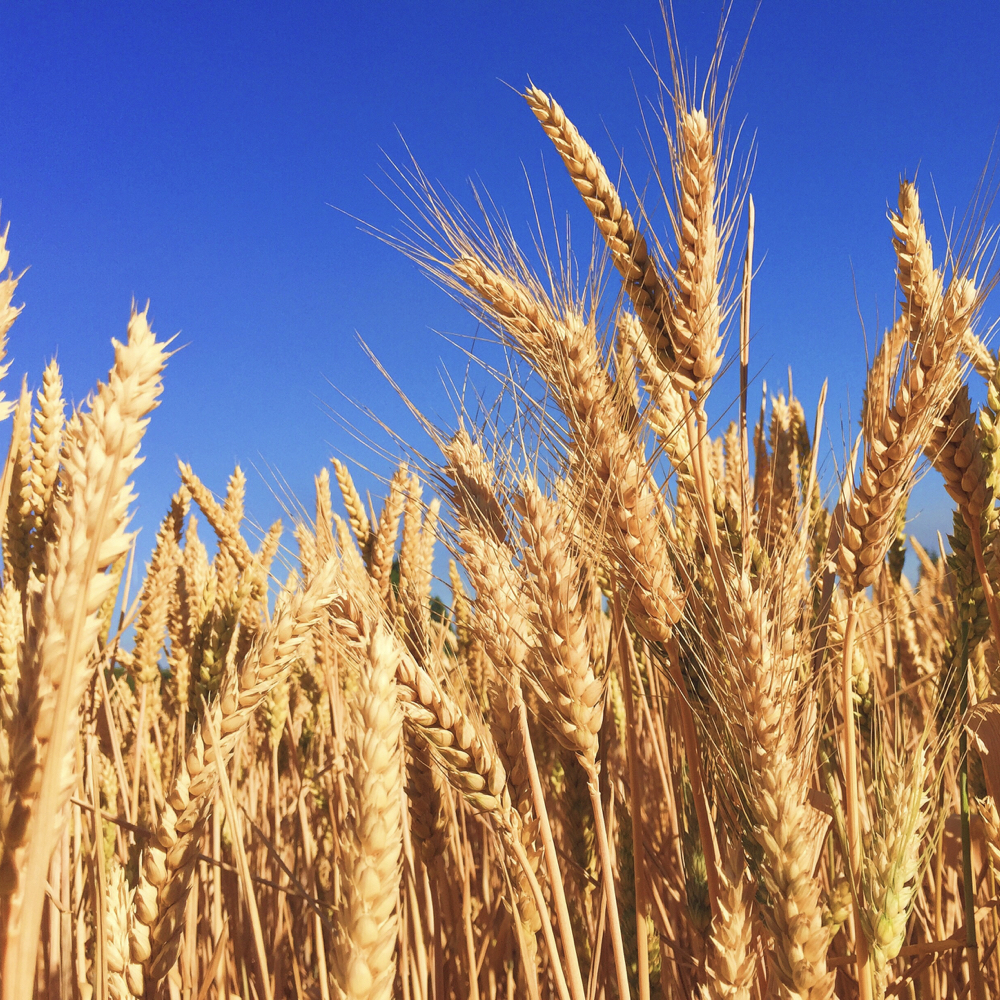
Grains
Consistent with recommendations from leading cancer and heart disease authorities, my recommended Daily Dozen includes at least three servings of whole grains a day. Harvard University’s preeminent twin nutrition studies—the Nurses’ Health Study and the Health Professionals Follow-Up Study—have so far accumulated nearly three million person-years of data. A 2015 analysis found that people who eat more whole grains tend to live significantly longer lives independent of other measured dietary and lifestyle factors.
A diet rich in whole grains, for example, may yield the same benefits as taking high blood pressure medications without the adverse side effects commonly associated with antihypertensive drugs, such as electrolyte disturbances in those taking diuretics; increased breast cancer risk for those taking calcium-channel blockers; lethargy and impotence for those on beta blockers; sudden, potentially life-threatening swelling for those taking ACE inhibitors; and an increased risk of serious fall injuries for apparently any class of these blood pressure drugs.
Indeed, eating whole grains appears to reduce the risk of heart disease, type 2 diabetes, obesity, and stroke. Eating more whole grains could potentially save the lives of more than a million people around the world every year. Take note of the whole, however. While whole grains, such as oats, whole wheat, and brown rice, have been shown to reduce our risk of developing chronic disease, refined grains may actually increase risk.
People who ate the most whole grains had significantly slower narrowing of two of the most important arteries in our body: the coronary arteries that feed the heart and the carotid arteries that feed our brain. Since atherosclerotic plaque in the arteries is our leading killer, we should not just slow down the process but actually stop or even reverse it altogether, and eating more whole grains, whole vegetables, whole fruits, whole beans, and other whole plant foods can help with that.
For substantiation of any statements of fact from the peer-reviewed medical literature, please see the associated videos below.
Image Credit: Melissa Askew / Unsplash. This image has been modified.
Popular Videos for Grains

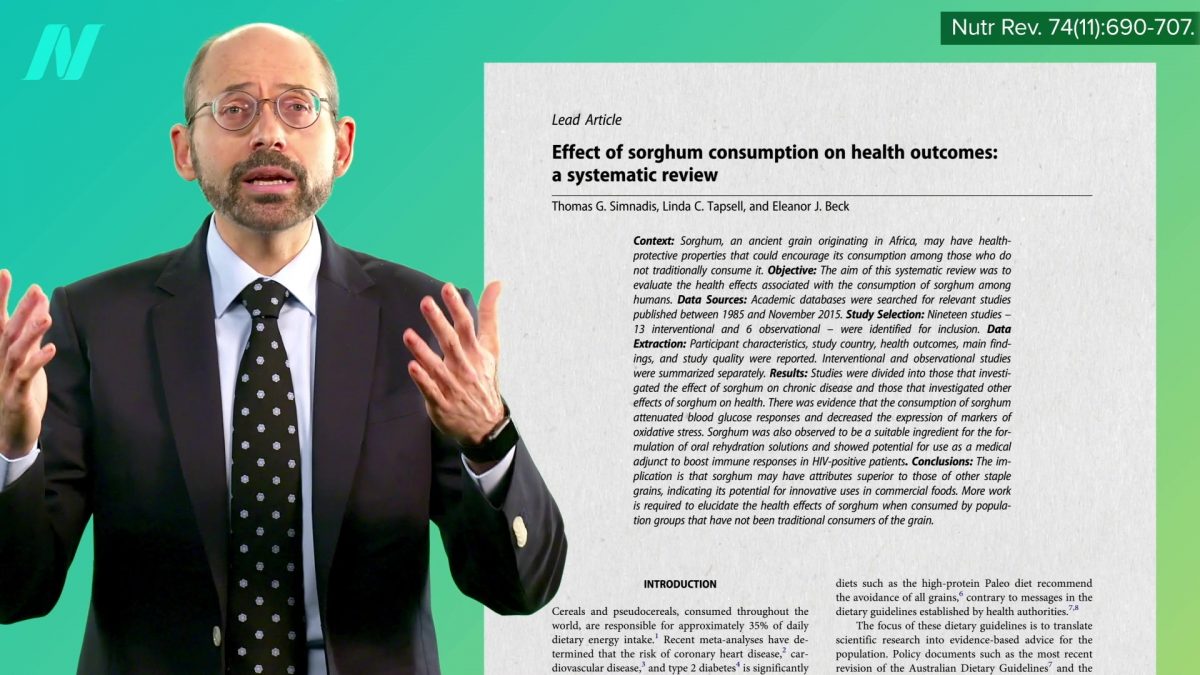
The Health Benefits of Sorghum
Learn why sorghum is one of my favorite new grains.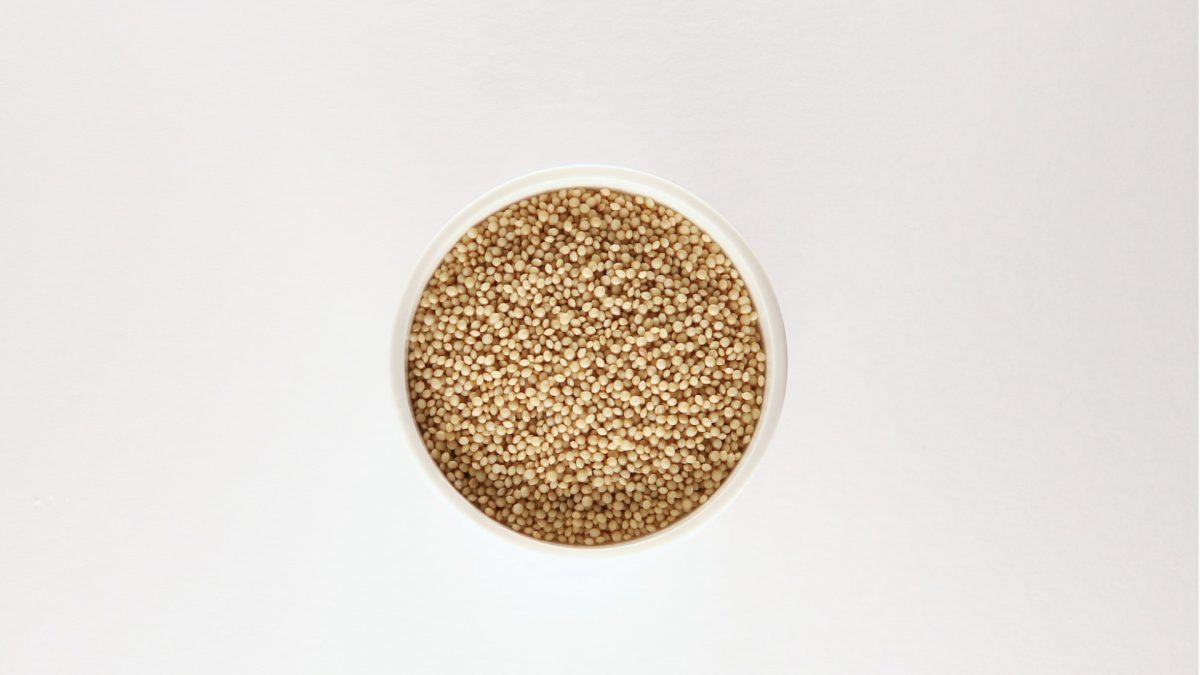
Are Ancient Grains Healthier?
Ancient wheats like kamut are put to the test for inflammation, blood sugar, and cholesterol...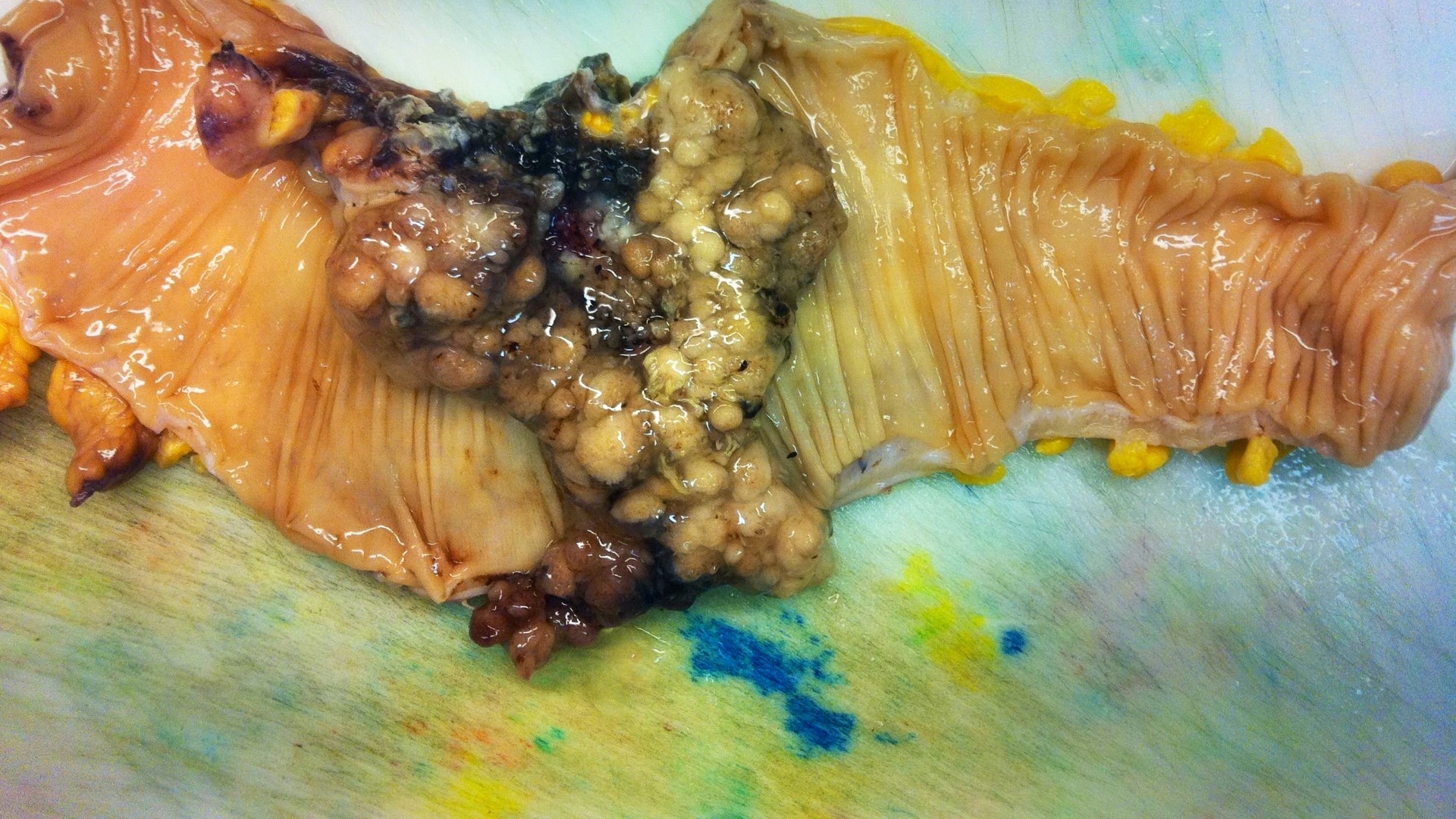
Resistant Starch and Colon Cancer
Fiber isn’t the only thing our good gut bacteria can eat. Starch can also act...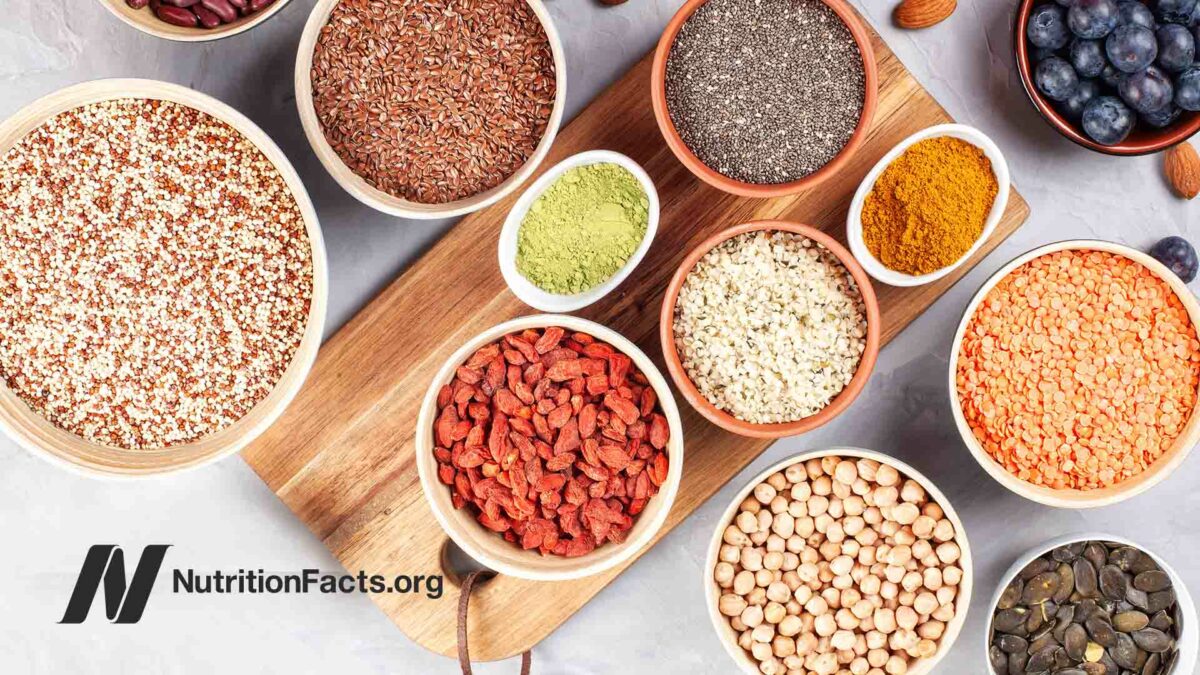
Getting Starch to Take the Path of Most Resistance
How might beans, berries, and intact (not just whole) grains reduce colon cancer risk?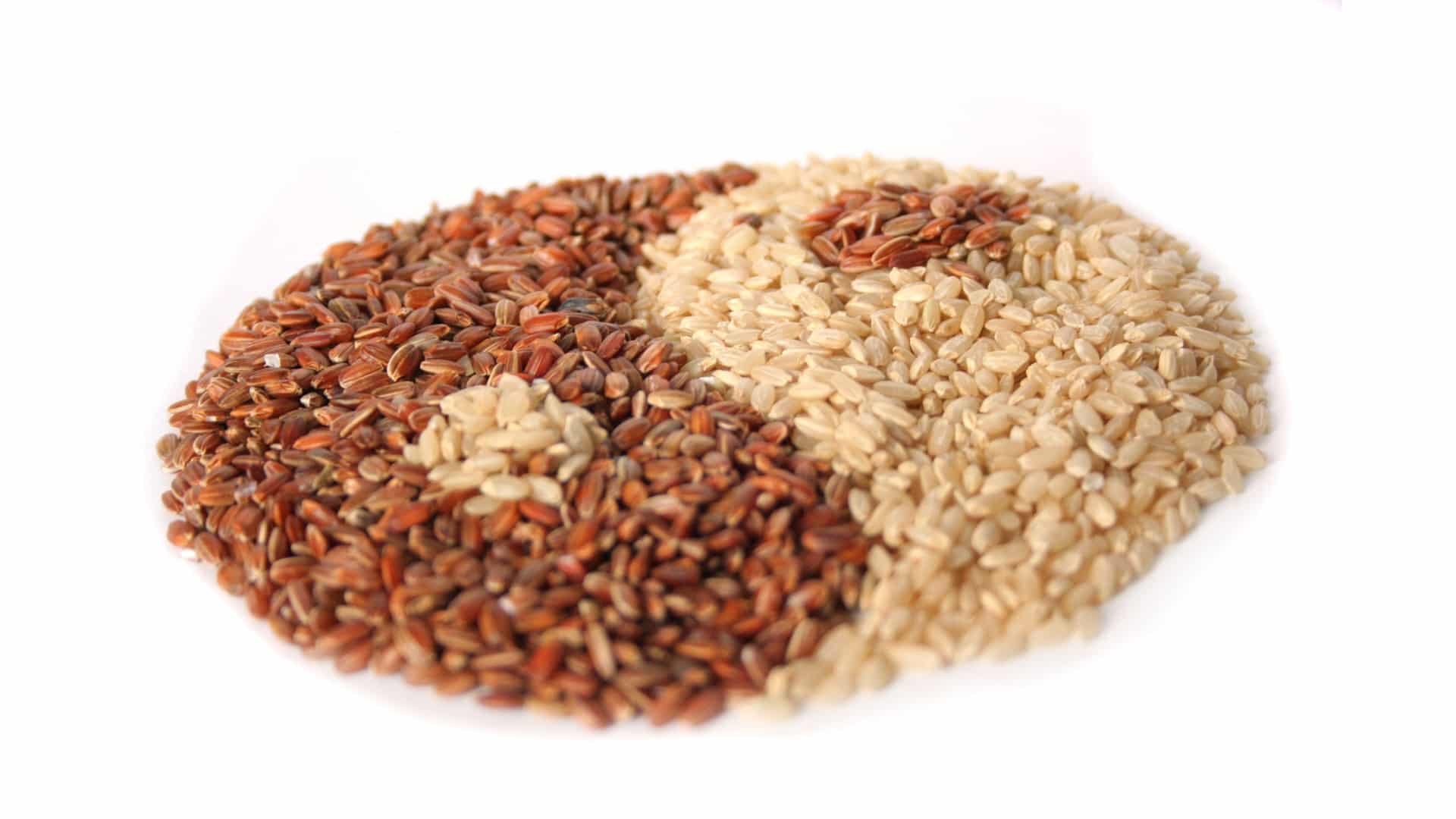
Gut Microbiome – Strike It Rich with Whole Grains
What can we eat to increase good gut bacteria richness in our colon?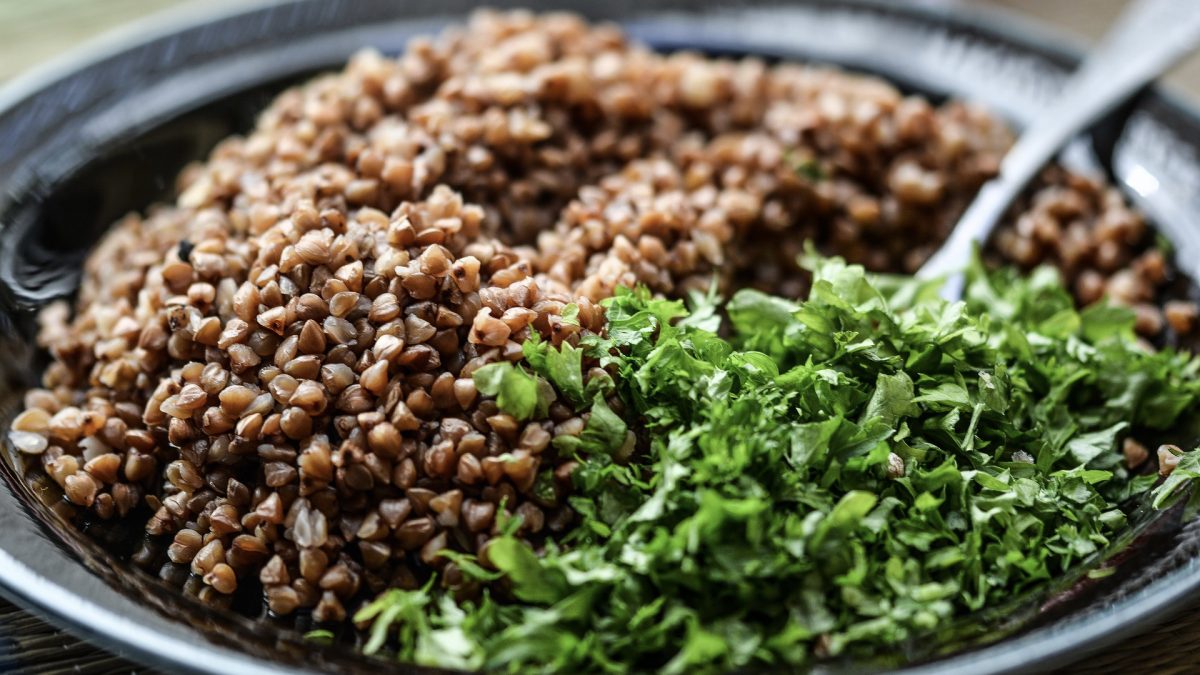
Microbiome: We Are What They Eat
What happens to our gut flora when we switch from a more animal-based diet to...
How to Cook Rice to Lower Arsenic Levels
Boiling rice like pasta reduces arsenic levels, but how much nutrition is lost?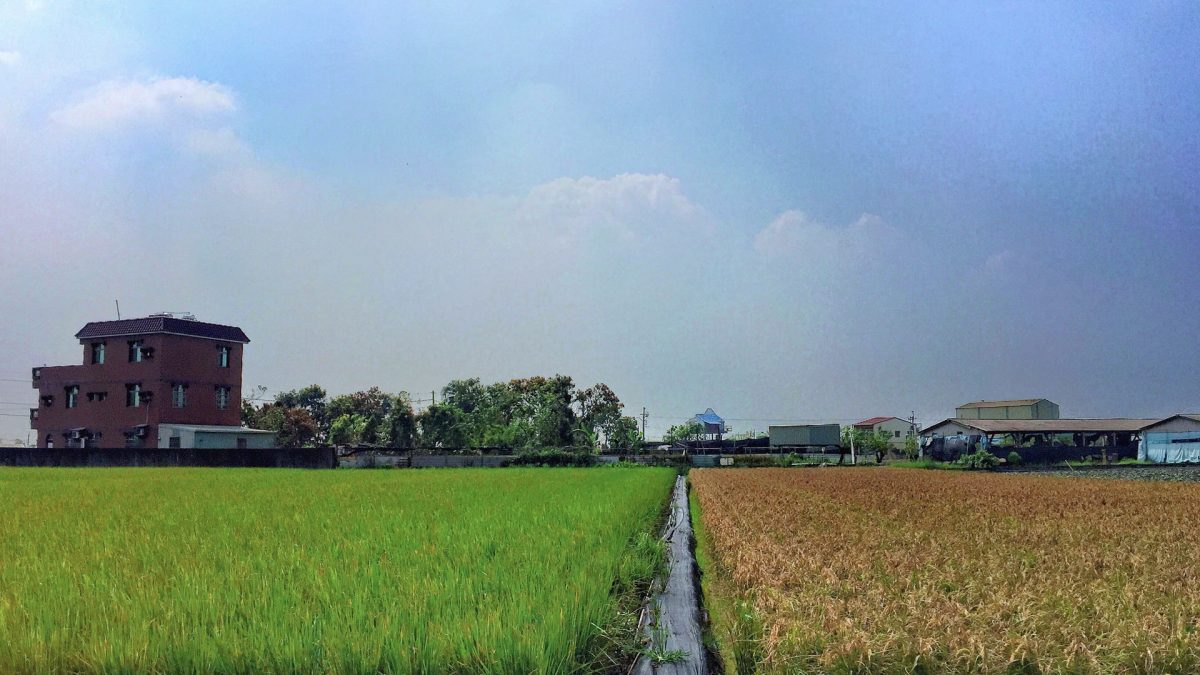
How Risky Is the Arsenic in Rice?
Getting rice down to the so-called safe water limit for arsenic would still allow for...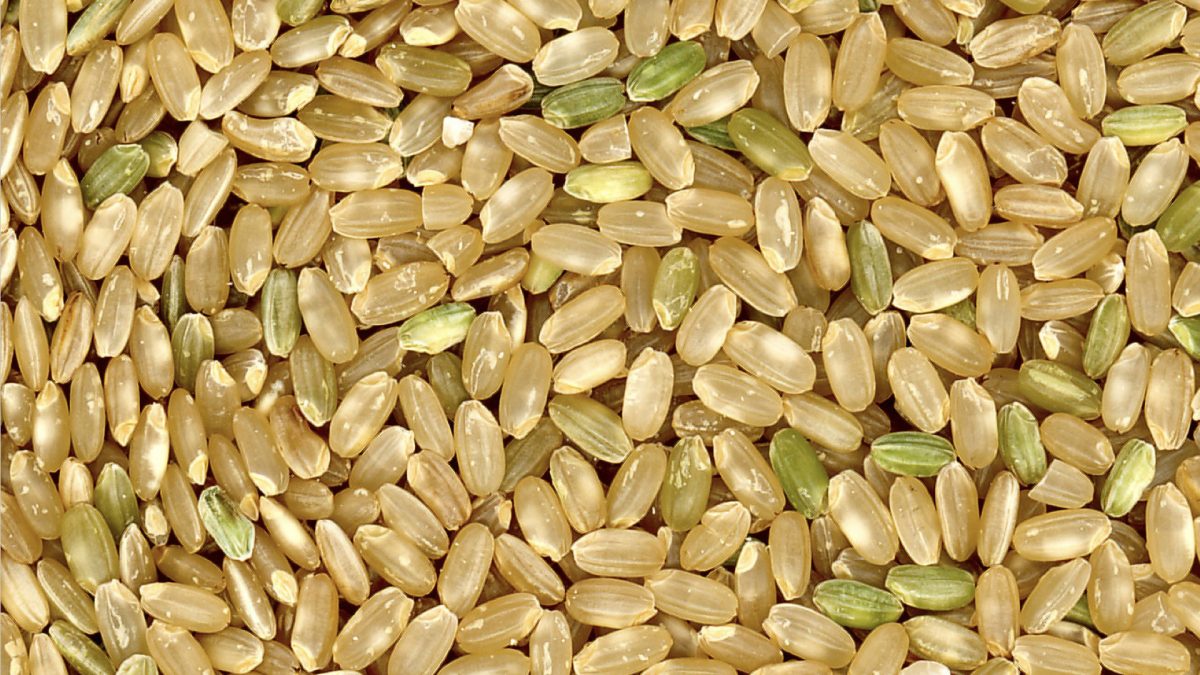
Do the Pros of Brown Rice Outweigh the Cons of Arsenic?
Are there unique benefits to brown rice that would justify keeping it in our diet...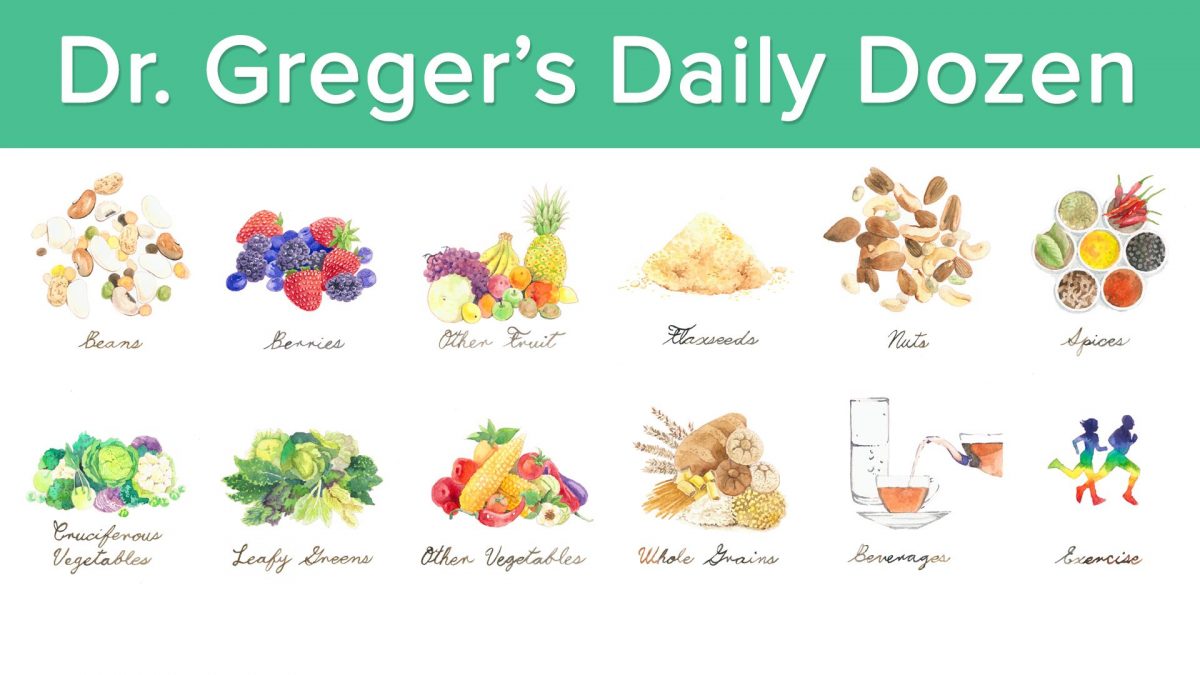
Dr. Greger’s Daily Dozen Checklist
In my book How Not to Die, I center my recommendations around a Daily Dozen...All Videos for Grains
-

How Much Do Doctors Know About Nutrition?
Who won in a head-to-head test of nutrition knowledge––doctors or patients?
-

Diverticulosis Diet: Should Nuts, Seeds, and Popcorn Be Avoided?
From a rarity to an epidemic disease, diverticulosis is a disease of fiber deficiency.
-

Obesity: Is a GLP-1 Deficiency Its Cause, and How to Treat It Without Ozempic and Other Drugs
What is a safer and cheaper way to lose weight than GLP-1 drugs?
-

Using Prebiotics, Intact Grains, Thylakoids, and Greens to Boost Our GLP-1 for Weight Loss
Boost our natural satiety hormone GLP-1 through out diet.
-

Does Drinking More Water Help You Lose Weight?
Those who stay hydrated tend to maintain a healthier body weight, but is it cause and effect?
-

APOE—The Single Most Important Gene for Longevity
APOE is the primary cholesterol carrier in the brain and plays a major role in packaging and transporting LDL cholesterol throughout the body.
-

How Not To Age – Live Presentation
In this live lecture, Dr. Greger offers a sneak peek into his latest book, How Not to Age, a New York Times Best Seller.
-

The Supplement Shown to Slow Age-Related Hearing Loss
Some studies found that higher levels of folate in the blood seem to correlate with better hearing, so researchers decided to put it to the test.
-

Age-Related Hearing Loss Is Preventable, So What Causes It?
Why do some populations retain their hearing into old age?
-

The Best Diet for COVID and Long-COVID
Healthy plant-based diets appear to help reduce the risk of severe COVID-19 and getting infected in the first place, even independent of comorbidities.
-

Which Foods Are the Most Anti-Angiogenic?
For cancer prevention, researchers suggest “constant consumption” of anti-angiogenic foods.
-

Greens, Green Tea, and Nuts Put to the Test for Telomeres
Not all plant foods are linked to less cellular aging based on telomere attrition, and not all animal foods are linked to more.
-

Fasting to Detox
How might we help flush the pollutants stored in our fat that come spilling out into our bloodstream during weight loss?
-

Plant-Based Pregnancy Outcomes and Breast Milk
The composition of breast milk is compared between vegetarian and nonvegetarian women.
-

Strategies to Eat Less Meat
What is the most effective way to help people reduce their meat consumption?
-

Plant-Based Diet for Treating and Reversing Stage 3 Kidney Disease
I share a touching story of the power of plant-based eating for chronic kidney failure.
-

A Case of Stage 3 Cancer Reversal with Fasting
I go over a case report of water-only fasting, followed by a whole food, plant-based diet for follicular lymphoma.
-

Soul Food That’s Good for the Soul
The best of soul food’s origins are tied to the plant-centric West African diet.
-

Oatmeal Diet Put to the Test for Diabetes Treatment
What are the extraordinary, lasting benefits we may get from a few days of an oatmeal diet?
-

How Does Oatmeal Help with Blood Sugars?
The prebiotic fiber in oats helps to explain why oatmeal can improve diabetic control.
-

Is Oatmeal Good for People with Diabetes?
Before there was insulin, there was the “oatmeal cure.”
-

Dr. Greger in the Kitchen: Groatnola
Dr. Greger whips up another of his go-to breakfast meals.
-

The Best Diet for Fibromyalgia and Other Chronic Pain Relief
Anti-inflammatory diets can be effective in alleviating chronic pain syndromes.
-

The Best Diet for Cancer Patients
What diet should oncologists recommend?
-

Diet and Lifestyle for Cancer Prevention and Survival
What kind of diet should cancer patients eat?
-

Vitamin D May Explain Higher Bone Fracture Risk in Vegans
A combination of low calcium intake and low vitamin D exposure may explain higher bone fracture rates in British vegans.
-

Using the Cigarette Tax Playbook Against Big Food
How might we replicate one of our great public health victories—the reduction of smoking rates—in the field of nutrition?
-

Low-Protein Diets for Parkinson’s Disease
How might we maximize the therapeutic efficiency of levodopa?
-

The Best Diet for Treating Atrial Fibrillation
What foods should we eat and avoid to reduce our risk of Afib?
-

How to Cultivate a Healthy Gut Microbiome with Food
Our gut flora is determined by what we eat, for good or for ill.
-

How Much Does Meat Affect Longevity?
If you care about your health so much that it would be unthinkable to light up a cigarette before and after lunch, maybe you should order a bean burrito instead of a meaty one.
-

Fewer Than 1 in 5,000 Meet Sodium and Potassium Recommended Intakes
A staggering 99.99 percent of Americans fail to get the minimum recommended potassium intake (despite it being perhaps only half of our natural intake) and stay below the recommended sodium intake (even though it may be twice our natural intake).
-

IARC: Processed Meat Like Bacon Causes Cancer
How did the meat industry, government, and cancer organizations respond to the confirmation that processed meat, like bacon, ham, hot dogs, and lunch meat, causes cancer?
-

Do the Health Benefits of Peanut Butter Include Longevity?
Why are nuts associated with decreased mortality, but not peanut butter?
-

How to Boost FGF21 with Diet for Longevity
Fasting and exercise can boost the longevity hormone FGF21, but what can we eat—or avoid eating—to get similar effects?
-

How to Increase Your Life Expectancy 12 to 14 Years
What can physicians do to promote healthy, life-extending, lifestyle changes?
-

Glycemic Index of Potatoes: Why You Should Chill and Reheat Them
If you eat potatoes when they’re cold, as in potato salad, or chilled and reheated, you can get a nearly 40 percent lower glycemic impact.
-

Do Potatoes Increase the Risk of Diabetes?
Does the link between white potatoes and diabetes extend to non-fried potatoes without butter or sour cream?
-

How to Heal a Leaky Gut with Diet
The recommended diet for leaky gut treatment. Which foods and food components can boost the integrity of our intestinal barrier?
-

Plant-Based Eating Score Put to the Test
How can you get a perfect diet score?
